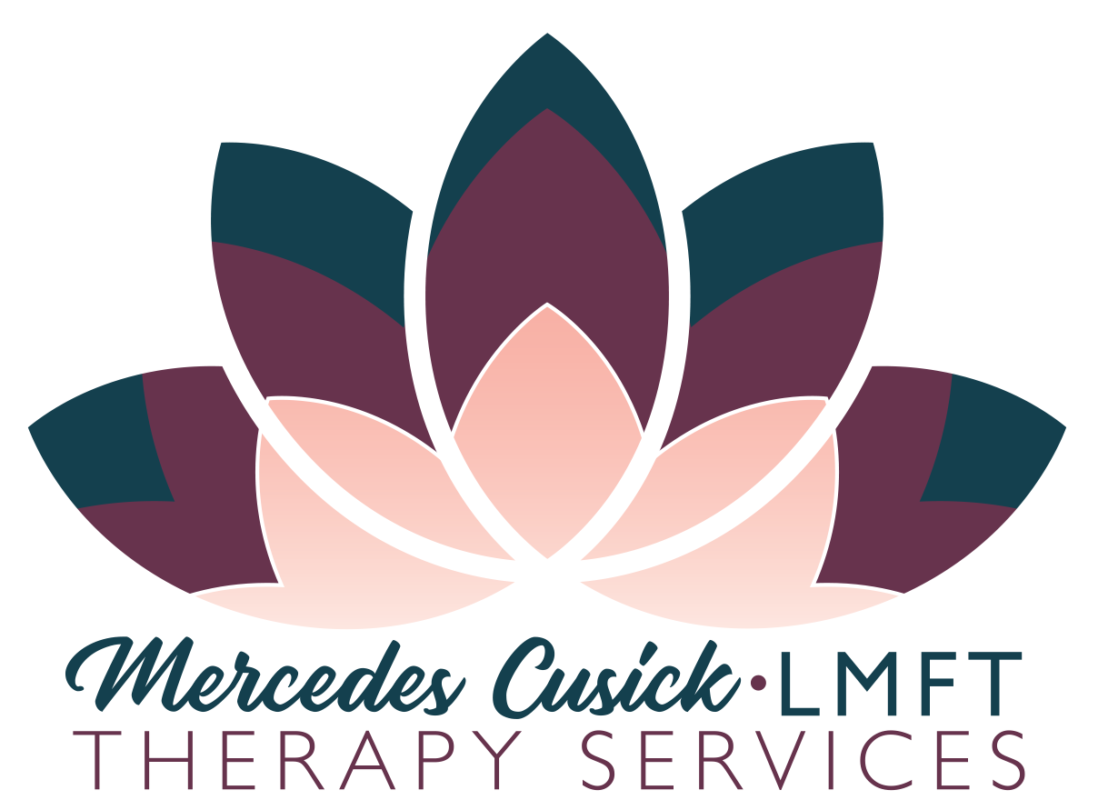My name is Mercedes Cusick, and I am a licensed trauma therapist specializing in
EMDR.
In this blog entry I want to talk today about DISSOCIATION.It is something that I come across a lot as a trauma therapist. I believe there is much confusion around what it is – so I’m hoping to help clarify it for you.
Our nervous system utilizes dissociation as a strategy to deal with all kinds of things. The reality is dissociation can be beneficial as well as sometimes an unhealthy adaptation to our nervous system. In short, dissociation is a neurobiological process that affects someone’s ability to hold attention and awareness in the present moment. Often dissociation doesn’t happen consciously – it is more of a reflex. Kind of like if you touched something hot – your reflex is to pull away. The same can happen emotionally– I feel in danger, so I mentally check out.
Trauma and dissociation go hand in hand. Often ¾ of people exposed to a traumatic incident will experience a dissociative state in the hours, days or weeks following the incident. I want to normalize this dissociative state because it is our body’s natural survival mechanism to PROTECT US from trauma.
All humans can dissociate because it is built into our nervous system as a threat response for moments when our nervous system determines there is a THREAT. This threat could be an external situation like a dangerous situation or an internal situation like a thought, a smell, or a memory. These things can trigger a response in our nervous system to look for a way to deal with the distress.
Now nearly everyone experiences mild dissociation, such a daydreaming, getting lost in a moment, spacing out or your mind just wandering. We have all experienced a mild form of dissociation when driving and find that we have spaced out for a few moments and missed our off-ramp or have arrived somewhere without really remembering how we got there. Now, this is a normal human experience of dissociation.
On the other hand, trauma-related dissociation is sometimes described as a mental escape when physical escape is not possible or when a person is so emotionally overwhelmed that they cannot cope any longer. Sometimes dissociation is like switching off. A sense of being detached from yourself and your emotions. Your perception of people and things around you can become distorted and “unreal”.
Now, this trauma-related dissociation is often needed as a survival mechanism for protection, for example, with children that have been exposed to long-term physical, sexual and emotional abuse, including chronic neglect. This is when it can be considered beneficial – it helps these young children not have to remember the details of horrific abuse or the onset of the abuse. Dissociation is one of the few tools that young children have to cope and try to protect themselves.Often, when these children grow up to be adults and can’t remember the vivid details, they think maybe they have made it up, they question the events.
In my experience – if you have learned to dissociate as a protective measure – there is a reason for it. Trust what your body is telling you! Just because you may have suffered from childhood abuse and neglect doesn’t necessarily mean you will experience a dissociative disorder, and dissociation does not always begin in childhood. Dissociation is a RESPONSE to a traumatic event at any age. Also, there is significant research that a person with this condition is more likely to use drugs as a form of chemical dissociation to ward off PTSD symptoms.
The good news is more and more therapists are trained to work with trauma and dissociation. Getting help
allows people to safely express and process painful memories, develop new and healthy coping skills, be successful at daily functioning and tasks and improve relationships. It can help individuals not just survive but to feel free from the past.
Remember that true healing will come from working through your trauma. Trauma doesn’t have to be a life sentence. Let the healing start today by connecting with an experienced trauma-focused therapist in your area. Please message me privately if you have any questions.


